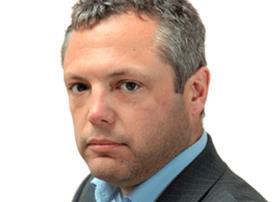Conceived in the 1990s by a thinktank, the so-called Overton window describes the range of ideas tolerated in public discourse. It is often cited when discussing the process by which policy positions once considered unthinkably radical – deluded even – edge their way into the mainstream. The window can move right or left, though it is most commonly associated with efforts to shift public opinion to the right.

Amid the general air of triumphalism attendant upon last week’s Supreme Court decision, the concept sprang to my mind once again. Not so long ago, we’d surely have considered it eccentric seriously to question the separation of powers. Not now.
To recap. Over the last few weeks, the very best of our legal profession has been on public show to millions. The prorogation saga has been a triumph for lawyers, who have appeared cool, courteous and forensic in an era when politicians on all sides are anything but.
Like her fellow Leodensian Alan Bennett, Lady Hale’s progress to the status of ‘national treasure’ seems thereby assured. Virtually bursting with pride, the not-hitherto-particularly-liberal Yorkshire Post even described her as ‘Leeds-born’ Lady Hale. As if she’d have come to a different opinion had she been born in Manchester.
But lawyers need to be vigilant when they become the story. Politicians really don’t like that. Last week’s ruling is being weaponised to revive what one might have hoped was a moribund debate about overtly politicising our senior judiciary.
Influential libertarian commentator Toby Young spoke for an ominously large constituency when he tweeted: ‘The decision fundamentally alters the balance of power in our constitution in favour of the judiciary. If we’re going to have a US-style Supreme Court from now on, SC Justices will need to be appointed by the PM and there will have to be confirmation hearings.’
Young added: ‘The Supreme Court decision isn’t a case of judges upholding the rule of law. It’s the law being used to introduce the rule of judges.’
It isn’t, of course. But we are going to hear a great deal more in this vein. I wonder how many of the present cabinet (in private at least) agree with Young.































No comments yet